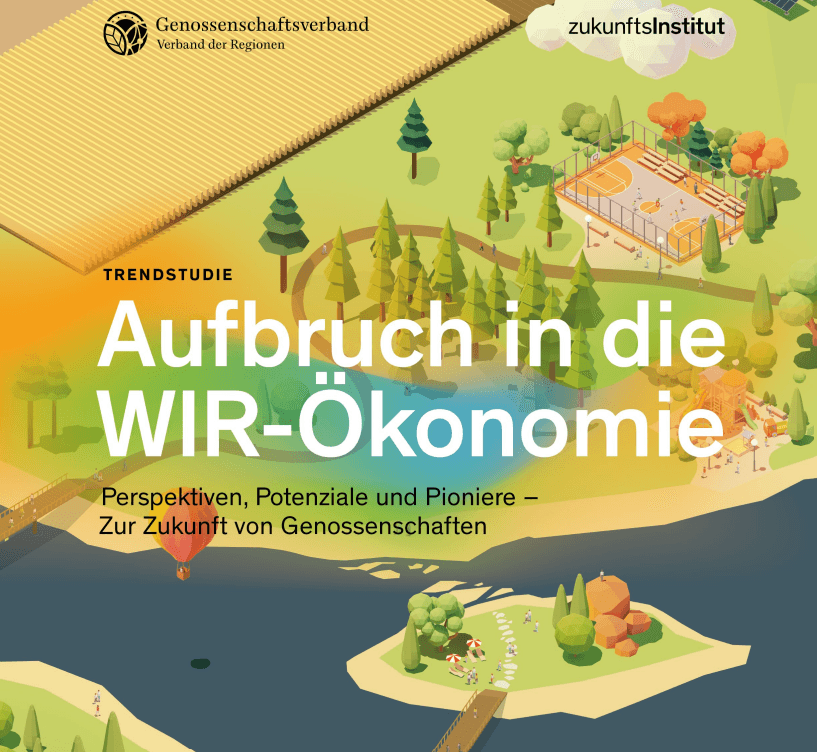AI-Generated Summary
Context and Publisher
This trend study examines the role of cooperatives in shaping a sustainable economy, particularly in rural Germany. It was authored by Dr. Daniel Dettling from the Zukunftsinstitut, a think tank focusing on future trends, on behalf of the Genossenschaftsverband – Verband der Regionen e.V., an association representing cooperatives in Germany. The study aims to highlight the potential of cooperatives amidst significant societal and economic shifts.
Key Findings
The findings reveal that cooperatives are perceived as vital drivers of a sustainable, solidarity-based, and efficient economy. A significant 69% of Germans regard cooperatives as a business form with future potential, while 76% believe they are essential problem solvers for societal challenges. These statistics underscore the growing recognition of cooperatives as viable solutions to contemporary issues.
Megatrends Impacting Cooperatives
The study identifies major megatrends—Neo-Ecology, Connectivity, Mobility, and Silver Society—that particularly affect rural areas. These trends present new opportunities for cooperative business models, suggesting that they can play a crucial role in adapting to changing societal needs. The concept of "glocalization" is also highlighted, emphasizing the importance of connecting global and local developments to enhance regional production and supply chains.
Digitalization in Rural Areas
Digitalization is cited as a significant factor that enables new living and working arrangements in rural environments, making them more appealing. This technological advancement provides cooperatives with the tools to innovate and better serve their communities, thereby enhancing the attractiveness of rural living.
Potential Areas for Cooperatives
Several key areas for cooperative development are identified, including social infrastructure, housing, climate protection, mobility, local supply chains, agriculture, financial services, and cultural engagement. These sectors represent significant opportunities for cooperatives to contribute to sustainable housing and community development, aligning with broader goals of sustainability and social cohesion.
Challenges Ahead
Despite these potentials, the study outlines challenges, particularly a lack of awareness about cooperatives among younger generations. There is also a pressing need for more support in the establishment of new cooperatives, which is essential for realizing their full potential.
Recommendations for Action
The authors recommend leveraging the current crisis as an opportunity to promote cooperatives, emphasizing the need to combine solidarity, ecology, and digitalization. Simplifying the cooperative founding process, increasing citizen participation, and fostering diverse leadership are critical steps suggested for enhancing the cooperative landscape in Germany.
Implications for the Future
The conclusions drawn from this trend study indicate that cooperatives are well-positioned to address significant challenges, such as energy transition, healthcare, and local supply chains. However, for cooperatives to effectively contribute to rural economies, greater awareness and support are vital, especially among younger demographics. The strategic approach proposed by the study aims to leverage the strengths of cooperatives in community engagement and sustainable business practices, driving innovation and resilience in future rural economies.
